When the fall season hits, you start getting excited about all things pumpkin, because you absolutely love pumpkin. From the iconic pumpkin spice latte to pumpkin pie, pumpkin bread, and pumpkin seeds, you just can’t wait to dive headfirst into this autumnal flavor. But can dogs eat raw pumpkin?
You’re wondering if you can share the pumpkiny goodness with your pup. How can you add it to your dog’s diet? What are the health benefits?
Here’s the scoop on how you can safely incorporate raw pumpkin into your dog’s food.
Can Dogs Eat Raw Pumpkin? Feeding Pumpkin to Your Pup
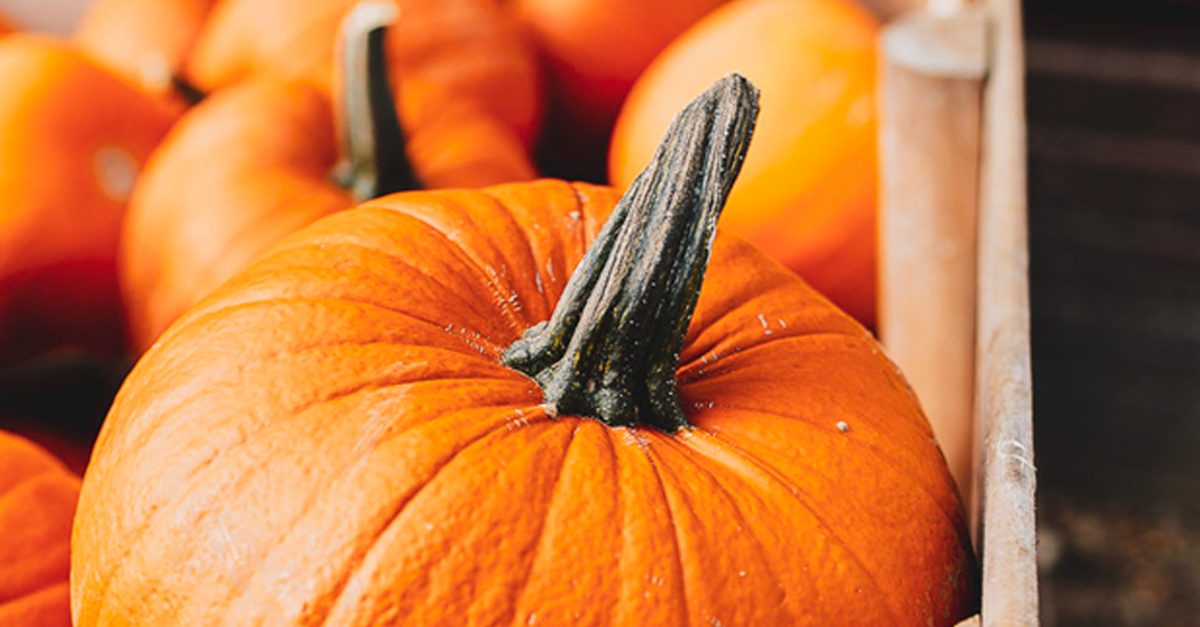
Can dogs eat raw pumpkin? It is indeed safe and beneficial to feed pumpkin to your dog. However, you should only stick to adding cooked or raw pumpkin or cooked pumpkin seeds (not raw pumpkin seeds) to your pooch’s pet food. You can mix it in with his kibble or give it to him by itself. He will let you know if he likes the taste of pumpkin if he gobbles it up or not.
When using canned pumpkin, make sure it is 100% pumpkin puree, and not pumpkin pie filling. You’ll want to look for plain canned pumpkin. Ask your DVM how much pumpkin you should feed your dog based on his body weight.
Cooked and unsalted pumpkin seeds are fine (and a great source of vitamin e and calcium), but you’ll want to avoid salted pumpkin seeds due to the high levels of sodium in them.
The Health Benefits of Pumpkin
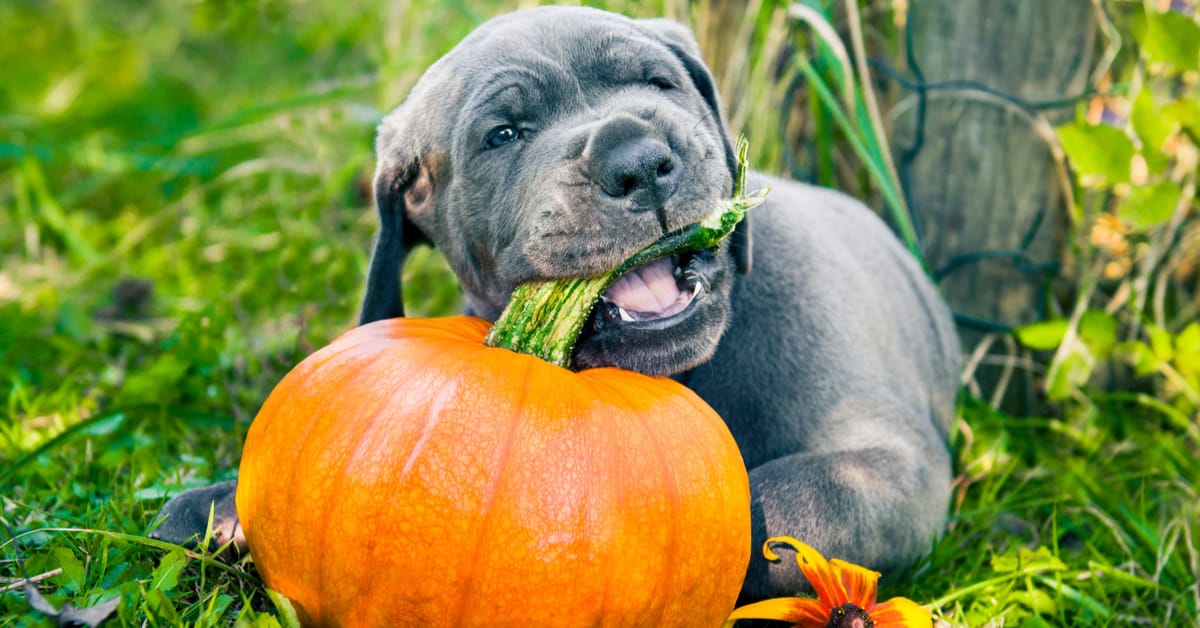
Whether you’re giving your dog pureed pumpkin from a can, raw pumpkin, or cooked pumpkin seeds, there are many health benefits of this superfood for your pooch and his digestive health.
Pumpkin is:
- High in fiber
- A dewormer
- High in vitamins and antioxidants
- Good for urinary health
- Satiating
- Great for both diarrhea and constipation
Since pumpkin contains an excellent source of fiber, it can help with constipation, diarrhea, and other gastrointestinal and digestive tract issues. It feeds healthy gut bacteria as well and improves your dog’s digestive system. It’s high in water and can keep your dog’s digestion system properly functioning while treating diarrhea. It will also absorb any excess moisture and help your dog’s stool get back to normal if he has diarrhea.
Pumpkin seeds contain cucurbitacin, which is an amino acid that can get rid of parasites in your dog’s body. The Omega-fatty acids in pumpkin seeds could also treat parasites – as well as dislodge kidney stones. Using this natural method of eliminating parasites and worms, like tapeworms, may be better than using a veterinary dewormer, which could cause harmful side effects. (Just check with your veterinarian first.)
Pumpkin is full of antioxidants and vitamins
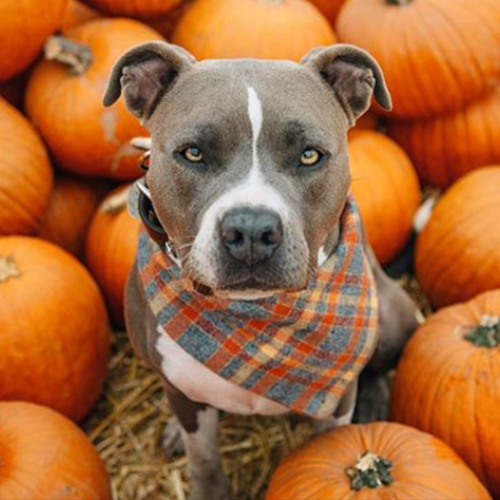
Another health benefit is that pumpkin contains carotenoids, which are antioxidants that could fight inflammation, protect your dog’s eyes, and slow down the aging process.
They also have magnesium, vitamin A and C, and zinc. Magnesium is good for treating constipation and urinary disorders. Zinc will help with your dog’s skin and coat, while A – and beta-carotene, which pumpkin also contains – are beneficial for eye health. Vitamin C can address joint and mobility issues and boost your dog’s immune system. Beneficial minerals iron and potassium are also found in pumpkin.
If your dog has issues with his urinary tract, pumpkin helps with that, too. Pumpkin seeds and pumpkin flesh have oils that contribute to their proper functioning.
If your dog often goes back to his bowl for more kibble – which is causing him to gain weight – you can add pumpkin to it instead. Since pumpkin contains so much fiber, it’s going to ensure that your dog stays fuller for longer. Plus, it may not be as high in calories as his dog food.
How Much Pumpkin to Give Your Dog
Before adding pumpkin into your dog’s diet, it’s always a good idea to consult your veterinarian about the amount of pumpkin that is safe for your dog to eat. However, the rule of thumb is to add just 1 to 4 tablespoons to your dog’s meal depending on his size (small dogs need much less). Don’t add so much right away, because you’ll want to see if your pup is allergic to it or has any sensitivity at first.
If your dog has diarrhea or soft stools, then you can add up to 1 tablespoon into your dog’s food for a large dog and 1 to 2 teaspoons for a small dog or medium dog once or twice a day. You should also keep your dog sufficiently hydrated when giving him pumpkin.
Can Dogs Eat Other Pumpkin Products?
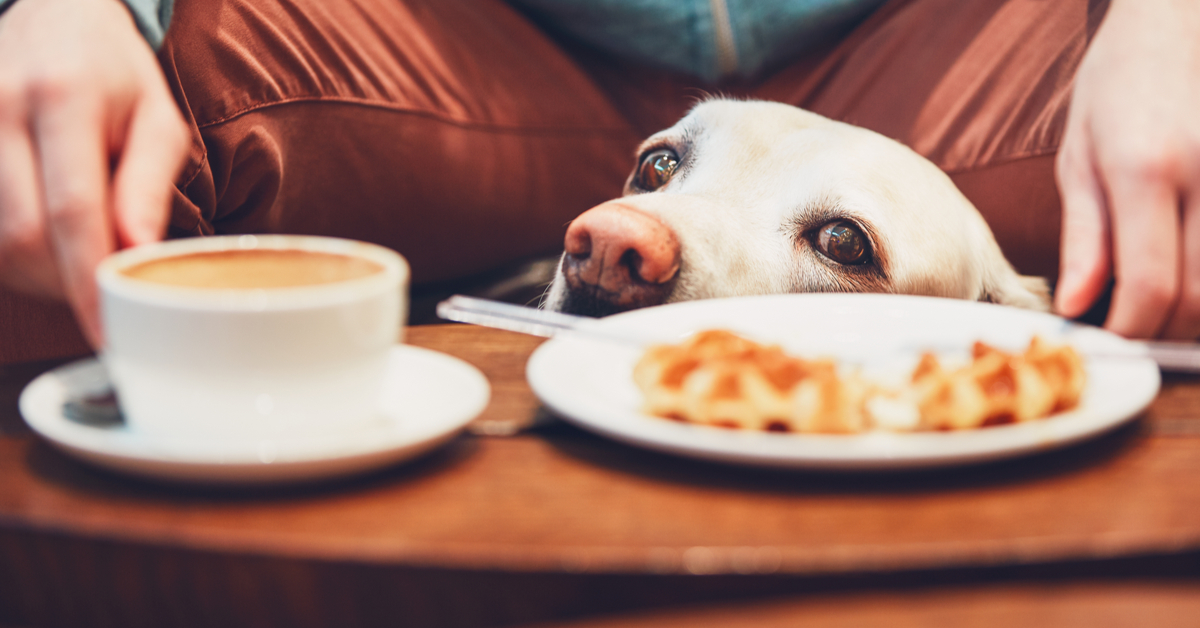
You should avoid giving your dog certain types of pumpkin products that could be harmful to his health. For example, it’s not a good idea to give him pumpkin skin, because it’s difficult to digest and could give him an upset stomach.
Additionally, pumpkin desserts like pumpkin bread and pumpkin pie are very high in sugar, and could contain other ingredients that are toxic to your pup like raisins, xylitol, chocolate, and macadamia nuts.
You shouldn’t feed pumpkin spice products to your dog either, because they may not even contain pumpkin. However, they could contain toxic ingredients like alcohol or caffeine.
When your dog eats pumpkin spice ingredients like cinnamon or nutmeg in large quantities, he could experience harmful symptoms.
If your dog eats a lot of pumpkin spice, here are the symptoms to look out for:
- high blood pressure
- dry mouth
- increased heart rate
- disorientation
- hallucinations
- vomiting
- diarrhea
Always stick with the pureed pumpkin that is 100% pumpkin, along with cooked, unsalted pumpkin seeds and cooked raw pumpkin.
Feeding Pumpkin Treats to Your Dogs
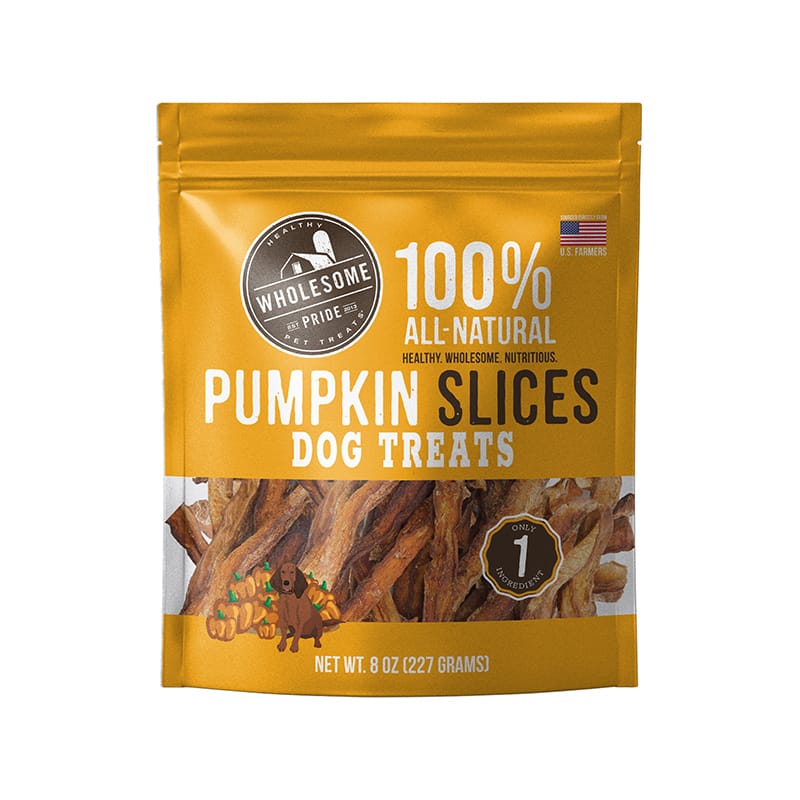
As long as you buy them from a reputable dog food company, pumpkin treats are safe for dogs (and especially wonderful for Halloween). For instance, Wholesome Pride’s Pumpkin Slices Dog Treats are all-natural, single-ingredient pumpkin treats that are grain-free and easy to digest. They are made with dehydrated pumpkin, so your dog can experience all the health benefits that pumpkin has to offer.
Pumpkin for dogs is great, but when looking for pumpkin treats, make sure they are as natural as possible without any additives. Going with high-quality treats is always a good idea, even if you have to pay a little bit more money. The benefits outweigh the cost and will contribute to the healthy functioning of your dog’s system.
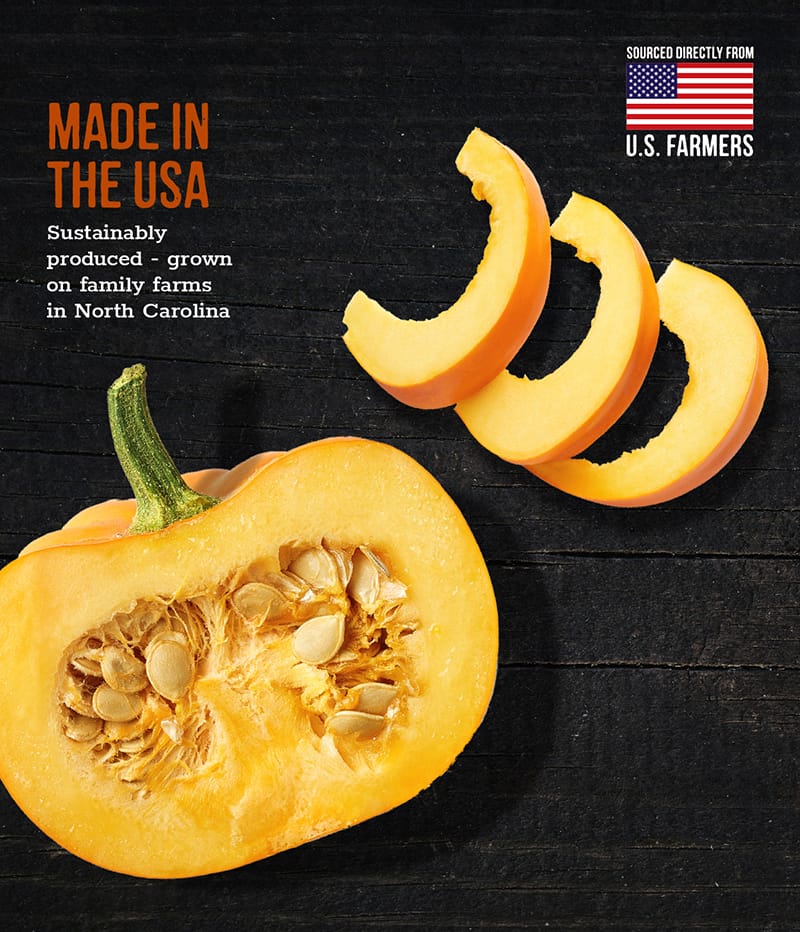
Keeping Your Dog Healthy
Pumpkin can be very advantageous to your dog. Just remember to not go overboard with it and watch your dog to see how he reacts to it. It’s a good idea to monitor his stool as well.
Whenever you add a new food to your dog’s diet, it’s best to consult your vet. If you aren’t comfortable feeding him straight, fresh pumpkin, you could always give him pumpkin treats formulated for dogs instead to keep him happy all pumpkin season long.

